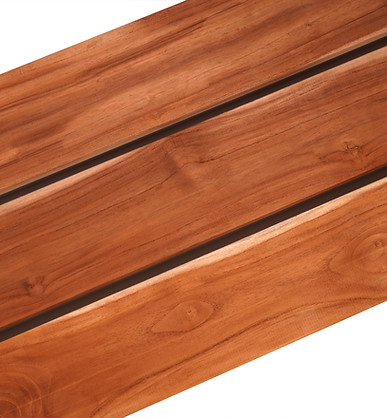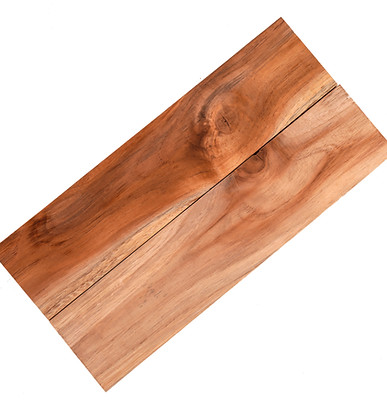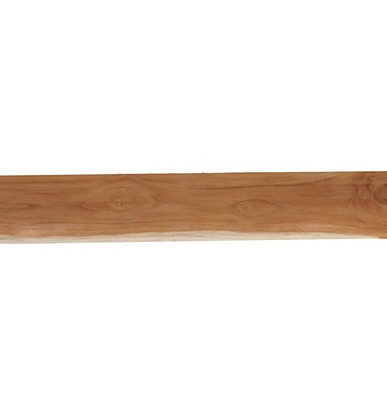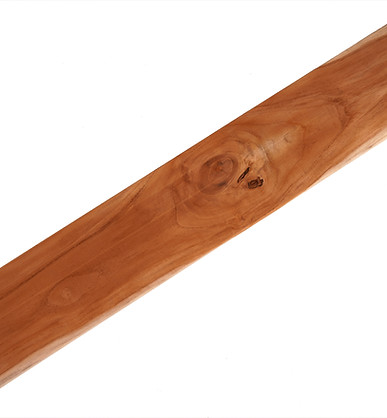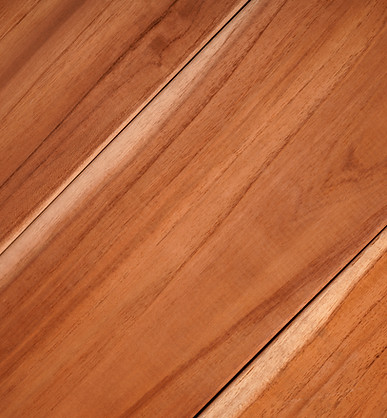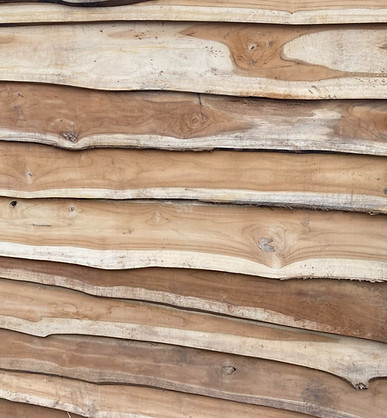
Timber

About Teak
History:
Teak ("Tectona grandis") is a tropical hardwood which is prized throughout the world for its resilience and quality. Known as the "King of Hardwoods" or the "King of Timbers", teak is native to South-East Asia in Myanmar, Laos, Cambodia and Indonesia. As a result of the timber's popularity, teak was introduced into Ghana over 100 years ago from the original Myanmar genetic seed stock, and has grown successfully in the country ever since.
Uses
For generations, Teak has been prized as a wood for uses as diverse as mine props, to boat building to fine furniture. Teak is sought after for its resistance to pests such as termites and disease. These properties ensure that teak is the perfect timber for outdoor uses. As a material, it has greater vertical strength than steel or concrete. Teak's unique resistance to saltwater has ensured its enduring popularity in boat building and marine construction. Teak is also highly desirable as a species for garden decking, interior flooring, kitchen worktops and cladding.
Properties
The wood is split into two distinct parts - heartwood and "vanilla" teak. The heartwood of teak is a rich caramel colour due to a high presence of natural oils, which develops and matures over time with exposure to sunlight. The "vanilla" teak, also known as "sapwood" is a yellow cream colour with fewer natural oils present. Both the heartwood and vanilla teak will silver with prolonged exposure to sunlight - this is completely natural, and the teak can be restored to its natural honey hue with a light sanding or pressure washing. As teak ages, the ratio of heartwood to sapwood increases. Despite common misconceptions, the grain and oil content of teak heartwood is not dependent on age - we have found that our teak at 12 years has outperformed 80 year old naturally-grown SE Asian teak in density, oil content and strength!
Teak Logs
Once our teak reaches commercial harvest age (10 years + depending on stand conditions) it is ready for the first harvest (see Forestry for more details on our sustainable felling and timber extraction practices).
Most timber buyers of teak at high volumes prefer to buy in log form, as many have their own processing facilities for primary and secondary processing into finished product. Mere's preference is also to sell logs as opposed to processed timber, as this allows the company to further concentrate on the development of the plantation rather than timber processing facilities.
Mere currently export logs to Singapore, Hong Kong, India, China, UK and Ireland, EU and US.
Logs are graded before felling and before loading into container. Our supply is split into four distinct grades, however due to the size and variation in the plantation any customer grade can be selected. Log colour, size and quality can be matches to buyer specifications.
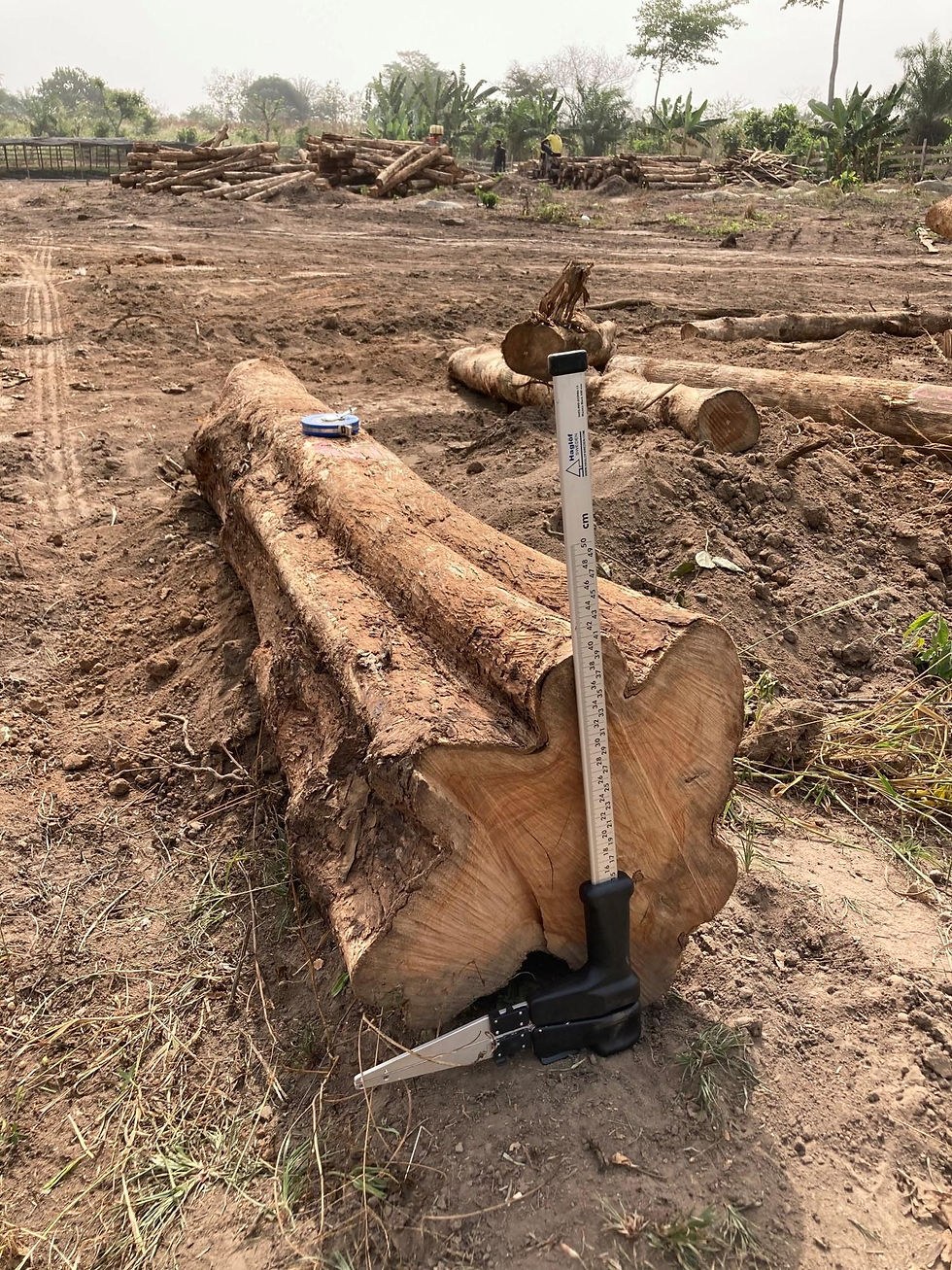



Processed Timber
Alongside the commercial sale of logs, Mere offer a large range of processed timber. In the UK, A&J Scott are the primary sawmill and processors of our timber. As a family business serving the timber industry since 1960, every teak product can be manufactured to the highest quality.
Queries and orders for the below products can be made at info@mereplantations.com
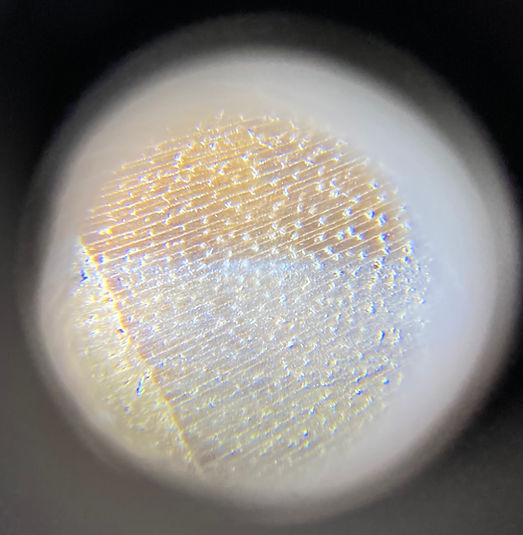.jpg)
Mere Plantations Teak
13 year old sample, known genetic stock
-
Medulla Rays ("grain", the parallel lines in the wood) are tight and uniform, increasing strength and durability.
-
Smaller, more frequent pores - increased growth rate and tensile strength (honeycomb-like structure), greater hydrophobic properties
-
Darker colour indicates higher lignin content, which improves water and disease resistance and gives a richer " caramel" colour when exposed to sunlight.

SE Asian Plantation Teak
40-80 year old sample, unknown genetic stock
-
Loose medulla Rays, leading to a timber with lower shearing and warping resistance.
-
Larger, frequent pores - weaker grain as large pores act as structural weaknesses (similar to air bubbles in concrete), greater ingress of water.
-
Closely-knit growth rings indicate slow growth, which can increase heartwood percentage but reduce sustainability (decades rather than years for the harvest site to recover the lost biomass, so fewer trees can be harvested sustainably per year).
Traceability

FLEGT Licensing
Mere Plantations' teak carries full Forest Law Enforcement, Governance and Trade (FLEGT) licensing through Ghana's rigorous Legality Assurance System. This licensing verifies that all timber is legally harvested and processed in compliance with Ghanaian forestry regulations and international standards. Mere has complied fully with FLEGT requirements since first harvesting in 2018.
Legal Compliance
Our operations maintain complete compliance with the European Union Deforestation Regulation (EUDR), United Kingdom Timber Regulation (UKTR), the US Lacey Act and other international legal requirements, ensuring that our timber products do not in any way contribute to deforestation or forest degradation. This traceability is possible as all the timber we sell, we have grown from seed on our own sites.
Timber Passport
We produce a "Timber Passport" for every consignment of timber sold. This suite of documents contains all of the certifications, permits and documents required for the export of timber - ranging from the land tenure and benefit sharing documentation, to timber harvesting permits, road transport licenses and full export permissions.
Chain of Custody
Our comprehensive chain of custody system tracks timber from specific plantation compartments through harvesting, loading, and export. The traceability system enables verification of origin and legality at every stage, providing documentation that satisfies the most stringent supply chain transparency requirements.
